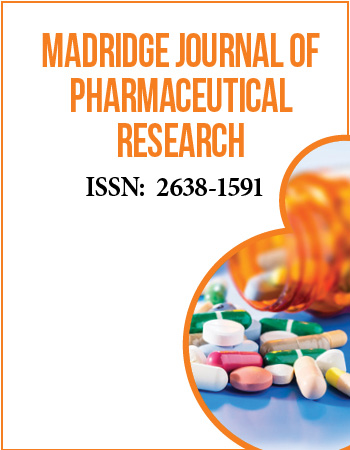International Conference on Medicinal and Pharmaceutical Chemistry
December 5-7, 2016 | Dubai, UAE
In vitro anti malarial activity of urelytrum giganteum (poaceae) pilg
Department of Biological Sciences, Ahmadu Bello University, Nigeria
The in vitro antimalarial activity of the crude methanol extract of Urelytrum giganteum used by traditional healers in Zaria, Nigeria for malaria treatment was screened against the erythrocyte stages of Plasmodium falciparum (strains 3D7 and FCR3). The screening methodology involved using the Malaria SYBR Green I- based fluorescence assay (MSF) for 3D7 strain, parasite lactate dehydrogenase (pLDH) colorimetric enzyme assay for FCR3 strain and haemolysis assay used as a cytotoxicity test for the crude extract. The crude extract and fractions obtained from non-polar and polar column elutions were dissolved in a non- lethal DMSO concentration (0.013%), serially diluted and added to ring stage of P. falciparum (200µl at 1 % parasitemia, 2 % hematocrit) with chloroquine (0.5µM, as control) and incubated at 37°C static for 96 hrs. This crude extract showed an IC50 of 6.78± 0.78µg/ml against 3D7 strain, IC50 of 6.70± 0.82µg/ml against FCR3 strain and only five column fractions from the fractions tested showed the highest activity against the parasite with notable IC50 values of 2.74, 2.05, 5.00, 1.46 and 3.96 µg/ml. The compounds phenyl propanoid and free fatty acids were identified from these fractions using GC-MS. Moreover, this crude extract exhibited no haemolytic activity at concentrations of 5 and 1 µg/ml against human erythrocytes. The outcome of these evaluations seems to support the basis for the traditional use of this plant in the management of malarial by ethno medicinal practitioners. However, further toxicity studies are encouraged to be carried out before this extract can find use in clinical management of malaria.
Keywords: MSF, pLDH, antimalarial, cytotoxicity, GC-MS, Urelytrum giganteum


